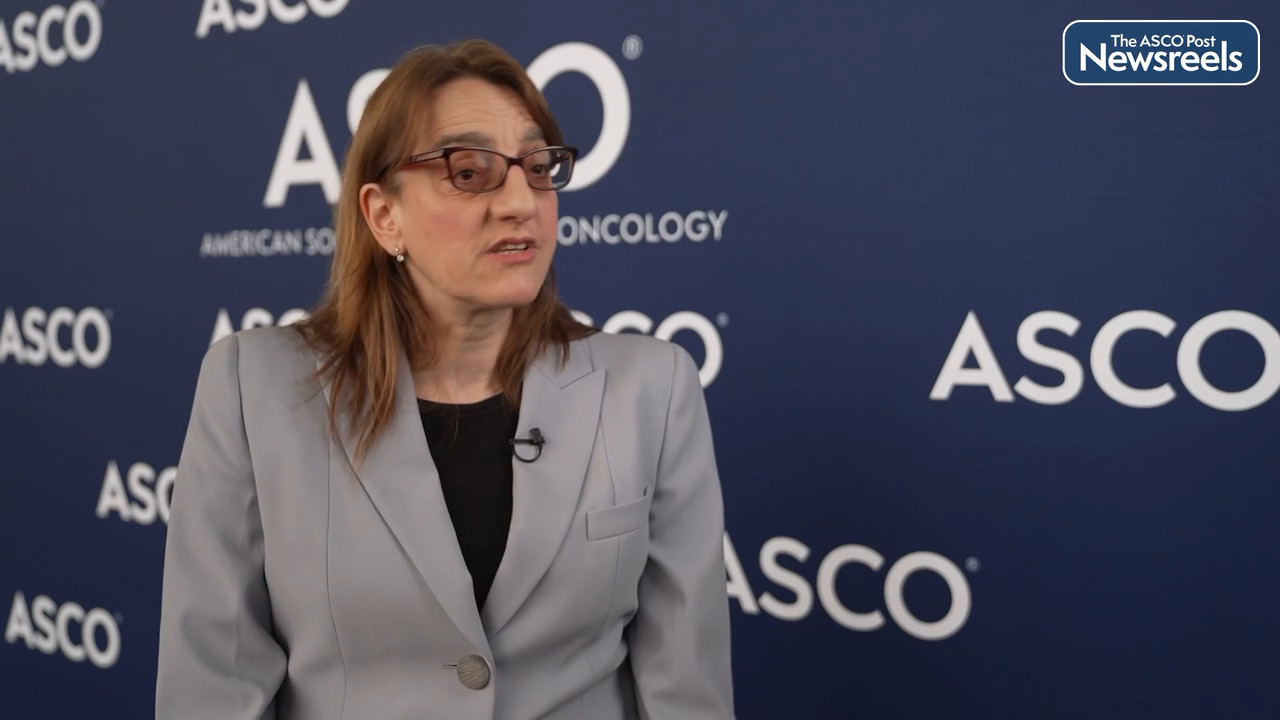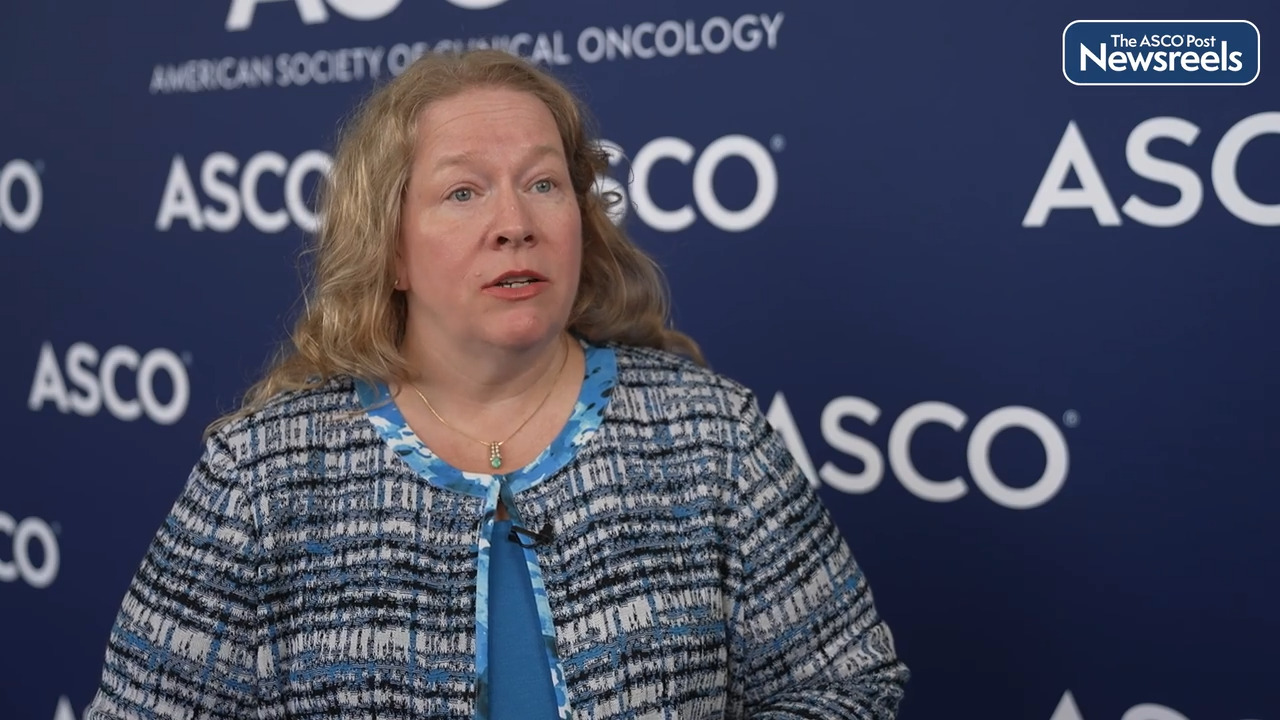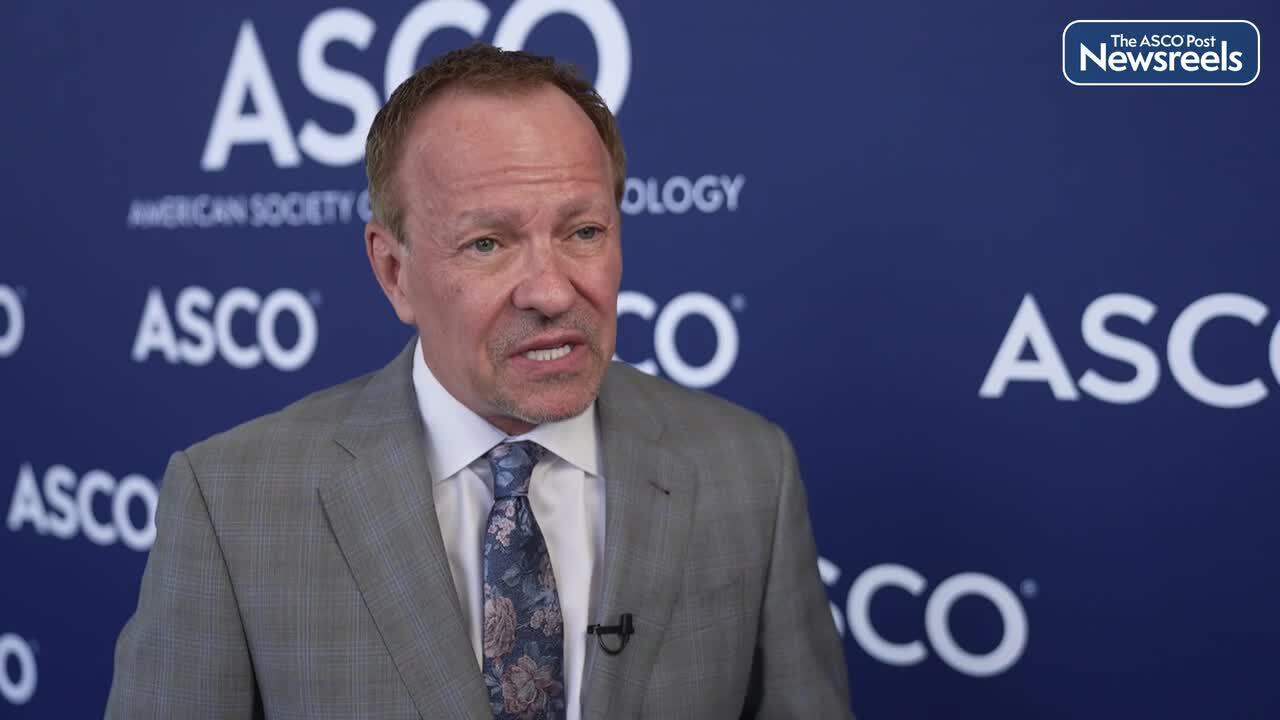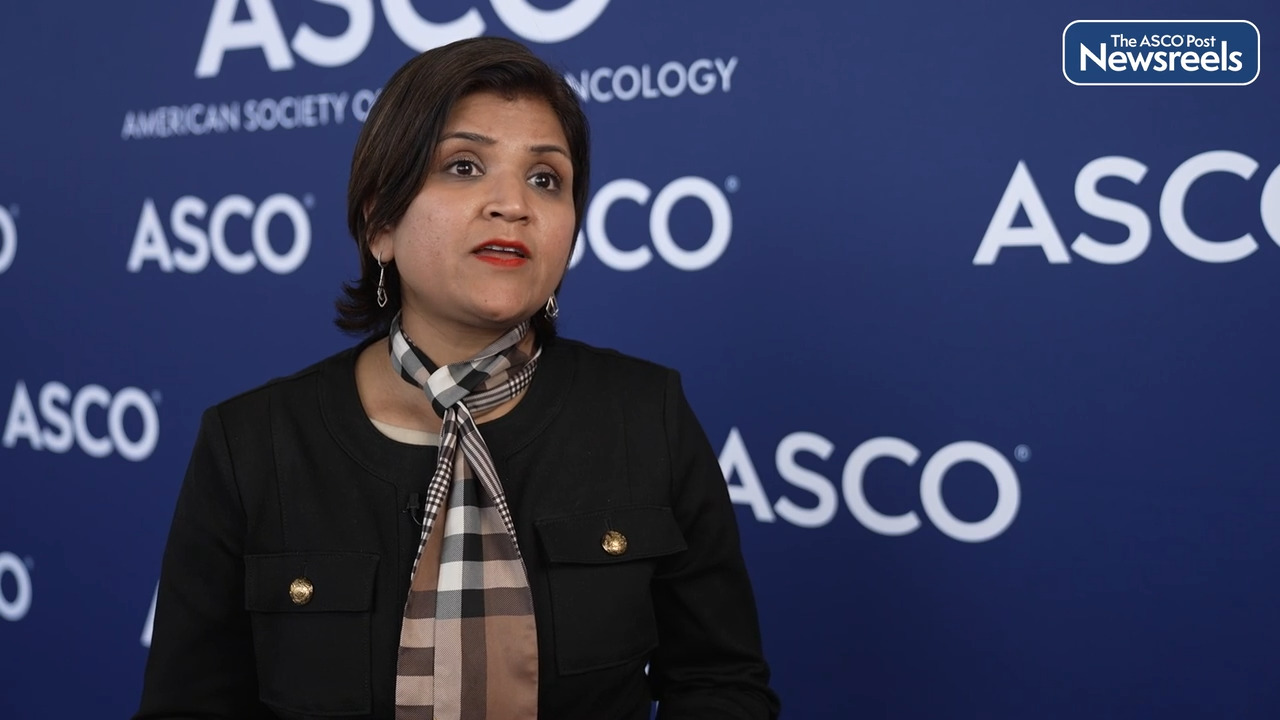Arlene O. Siefker-Radtke, MD, on Metastatic Urothelial Carcinoma: New Data on Erdafitinib vs Chemotherapy From the THOR Study
2023 ASCO Annual Meeting
Arlene O. Siefker-Radtke, MD, of The University of Texas MD Anderson Cancer Center, discusses phase III findings showing that for patients with advanced or metastatic urothelial carcinoma and FGFR alteration who already had been treated with a PD-(L)1 inhibitor, erdafitinib significantly improved overall and progression-free survival, as well as overall response rate, compared with investigator’s choice of chemotherapy (LBA4619).
Transcript
Disclaimer: This video transcript has not been proofread or edited and may contain errors.
Arlene O. Siefker-Radtke:
We now have results from the THOR clinical trial studying erdafitinib in patients who have metastatic surgically unresectable urothelial carcinoma, who've received prior therapy for their tumor. This is the first clinical trial, showing proof of concept benefit from FGF targeted therapy, compared to what's been observed with chemotherapy.
The design of the trial takes patients who've had prior treatment, typically chemotherapy with platinum or carboplatinum, and patients may have had an immune checkpoint inhibitor. There are two cohorts to this trial. The cohort being presented is the group of patients who've had a prior immune checkpoint inhibitor. Patients were randomized between either erdafitinib alone or single agent taxane, or vinflunine, which is approved in Europe. And the results of the trial looked quite good indeed, with it hitting on all three endpoints.
The primary endpoint of the trial was median overall survival, and erdafitinib came in with a statistically significant improvement in overall survival with a median overall survival of 12 months compared to single agent chemotherapy, which was around 7.8 months. We also saw evidence of benefit in progression-free survival and overall survival. The progression-free survival with erdafitinib was around five and a half months. Single agent chemotherapy was half that amount, and the objective response rate for erdafitinib was around 45%, so that's 45% PRs and CRs, while single agent chemotherapy had a response rate of around 11%.
The toxicity reported is similar to what has been observed with other clinical trials of FGF targeted therapy, and as a result of this work, erdafitinib is here to stay as part of the standard armamentarium for the treatment of our urothelial cancer patients.
The ASCO Post Staff
Funda Meric-Bernstam, MD, of The University of Texas MD Anderson Cancer Center, discusses interim results from the DESTINY-PanTumor02 trial, the first tumor-agnostic global study of fam-trastuzumab deruxtecan-nxki (T-DXd) in a broad range of HER2-expressing solid tumors. This agent showed an encouraging overall response rate, particularly in patients with IHC 3+ expression; durable clinical benefit; and a manageable safety profile in these heavily pretreated patients. T-DXd may be a potential new treatment option for this population (Abstract LBA3000).
The ASCO Post Staff
Arlene O. Siefker-Radtke, MD, of The University of Texas MD Anderson Cancer Center, discusses the combination of erdafitinib and cetrelimab, which demonstrated clinically meaningful activity and was well tolerated in cisplatin-ineligible patients with metastatic urothelial carcinoma and fibroblast growth factor receptor alterations (Abstract 4504).
The ASCO Post Staff
Bradley J. Monk, MD, of the University of Arizona, Phoenix, and Creighton University, discusses phase III findings from the KEYNOTE-826 study of overall survival results in patients with persistent, recurrent, or metastatic cervical cancer. Study participants received first-line treatment of pembrolizumab plus chemotherapy, with or without bevacizumab, which reduced the risk of death by up to 40% in three different subsets of patients (Abstract 5500).
Ajay K. Nooka, MBBS, of Winship Cancer Center of Emory University, discusses findings from a pooled analysis of MagnetisMM studies. The data showed that, in patients with relapsed or refractory multiple myeloma who have not yet been treated with B-cell maturation antigen–directed therapies, elranatamab was efficacious and well tolerated.
The ASCO Post Staff
Shilpa Gupta, MD, of Cleveland Clinic, discusses the results from the EV-103 study and the unmet need for effective first-line therapies in cisplatin-ineligible patients with locally advanced or metastatic urothelial carcinoma. After nearly 4 years of follow-up, the trial findings showed that enfortumab vedotin-ejfv plus pembrolizumab continues to demonstrate promising survival trends with rapid and durable responses in this population (Abstract 4505).




